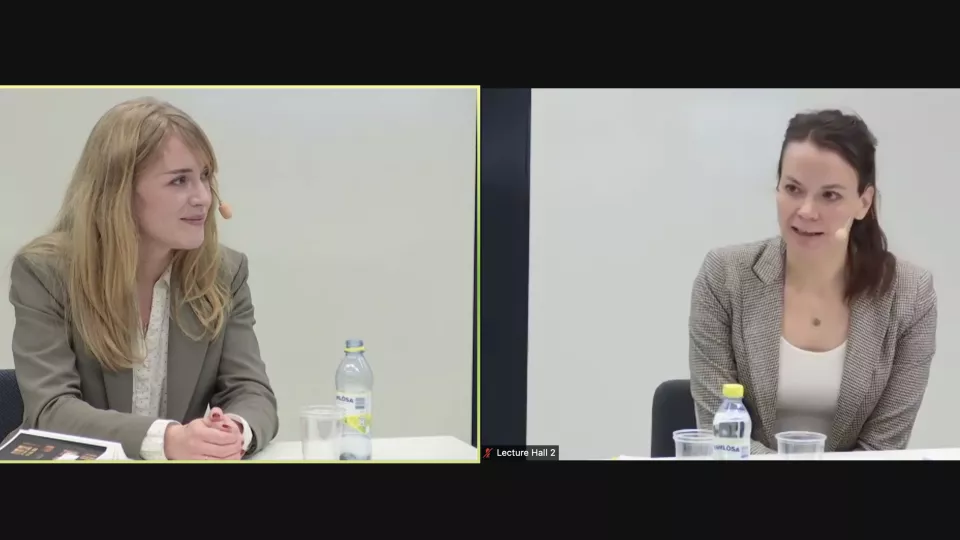Hanna Sahlin Lilja defended her thesis in sociology "The Emergence, Establishment and Expansion of Fear of Crime Research in Sweden" on Friday 17 December at 13:15 in Eden's Auditorium in Lund. The defence could also be followed via Zoom.
Discussant was Professor Anita Heber, at the Kriminologiska institutionen, Stockholm University
Examination committee:
- Professor Håkan Jönson, The School of Social Work, Lund University
- Professor David Wästerfors, The Department of Sociology, Lund University
- Associate Professor Sara Uhnoo, Gothenburg University
Main Supervisor and Chairperson of the defence was Professor Malin Åkerström from The Department of Sociology, Lund University
Hanna Sahlin Lilja's personal page in Lund University Research Portal.
Abstract:
The purpose of this dissertation is to construct an historical account of the emergence, establishment, and expansion of fear of crime research in Sweden. This dissertation aims to answer questions about the function, spread, and high level of institutional engagement of fear of crime research by analyzing the literature and examining the methodological, theoretical, and epistemological origins of fear of crime research itself. What happened when fear of crime was translated as "otrygghet", a word with a previously established meaning in Swedish? The analysis on the emergence of fear of crime in Sweden is based on documents, a survey of Swedish municipalities, and key informant interviews.
The question of conceptual change is addressed through comparing how "otrygghet" is used by Socialdemokraterna and Moderaterna in motions and bills from the Swedish Riksdag across five time periods: 1978, 1988, 1998, 2008 and 2018.
The dissertation is theoretically inspired by a Foucauldian interest in the intersection of power and knowledge and by an interest in historicizing the sociological and criminological development that this thesis depicts, using the work of Stuart Hall. The analysis of conceptual change is inspired by the conceptual historian Reinhart Koselleck.
The results show a rapid and striking expansion of fear of crime measurements during the 2000s. From 2003 to 2007, the number of national surveys containing fear of crime indicators grew from one to six, to include The Survey of Living Conditions that premiered in 1978, the Local Youth Politics Survey in 2003, The National Public Health survey in 2004, The Citizen Survey in 2005, The Swedish Crime Survey in 2006, and The Swedish Contingencies Agency Survey in 2007. For the municipalities, the period with the most dramatic increase in fear of crime measurements happens in the 2010’s, The percentage of municipalities that don’t do fear of crime surveys decreases from 98 percent before 1995, to 94 percent in 1995–1999, 74 percent in 2000–2004, 51 percent in 2005–2009, 30 percent in 2010–2014 and only 16 percent durign the last examined period, 2015–2018.
The analysis also shows that the meaning of "otrygghet" has undergone significant changes. From being used as a descriptive term commonly signifying economic and materialist unpredictability, over time "otrygghet" has come to be used almost exclusively in a crime context. The concept is exclusively used to argue for increased measures of police control and judicial expansion during the last examined period of 2018.
This dissertation argues that the development and expansion of fear of crime research can be understood by examining the function that fear of crime research fulfils in legitimizing an increased level of state control, which makes it a good fit for the penal politics of late modernity.


